
On June 24, NovaPay International Financial Service (NovaPay TM) launches a public offering of the 10th series of bonds – Series J – with a total nominal amount of UAH 100 million of its subsidiary NovaPay Credit LLC, which will be used by the issuer in its bond repurchase program, which is an alternative to deposits.
As reported on the company’s website, the public offer of series B, G and H bonds is simultaneously withdrawn.
According to the information, the rates under the repurchase agreements are as follows: 10% p.a. for one month (28 days), 12% for 2 months (63 days), 14.5% for 3 months, 16.5% for 4 months, 17.5% for 6 and 9 months, and 18% for 12 months.
The bonds were issued for a term of three years with interest income payable at the end of the maturity period, and the nominal interest rate was increased to 18% per annum from 17% per annum in the previous series.
Univer Capital LLC was appointed as the administrator of the J series bonds, as well as the previous ones.
“The funds raised as a result of the bond issue through a public offering are planned to be used in the following areas: credit operations for legal entities – 20% of the actual funds raised; credit operations for individuals – 80% of the actual funds raised,” the prospectus said earlier.
As reported, in 2023, NovaPay made three public issues of interest-bearing bonds of series A, B, and C for UAH 100 million each, and last year issued six more series of bonds – D, E, F, G, H, and I. In particular, in October-December 2024, three series of bonds – “G”, “H” and “I” – were placed for a total amount of UAH 290 million, which increased the total amount of the company’s securities in circulation to UAH 890 million.
Securities of all series, except for “B” and “I”, are used for the repurchase program and are available for purchase in the NovaPay mobile application, while “B” and “I” bonds are offered for sale to institutional clients, with interest income paid quarterly.
According to the prospectuses, the last three series of bonds have a three-year maturity. The nominal interest rate on them is 17% per annum, while for the three previous issues it was 18%.
NovaPay, which promotes most of its bonds as an alternative to bank deposits through a one- to 12-month repurchase scheme. Since April 17, the company has slightly raised interest rates on them: now they range from 10% per month to 19% per year, and a new investment term of four months at a rate of 17.5% per annum has been added.
NovaPay is an international financial service founded in 2001. It is part of the Nova group and provides online and offline financial services at Nova Poshta offices. It was the first non-bank financial institution in Ukraine to receive an expanded NBU license in 2023, which allowed it to open accounts and issue cards, and the first non-bank to launch its own financial application at the end of last year.
According to the previously published prospectus, NovaPay Credit plans to increase its interest income to UAH 802.1 million this year, and to UAH 1 billion 515.1 million next year, and to generate UAH 518.9 million and UAH 1 billion 30.6 million in net profit, respectively.
Last year, the company’s net profit increased to UAH 89.2 million from UAH 40.3 million a year earlier, while revenue grew to UAH 285.6 million from UAH 95.6 million.
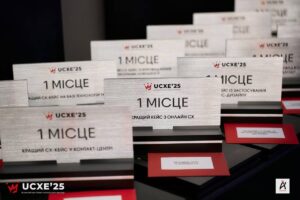
On June 20, 2025, the ceremony to award the winners of the All-Ukrainian Customer Experience Award UCXE’25 took place in Kyiv. The event was organized by KA Group with the support of general partners Nova Poshta, Oschadbank, and 4Service.
GENERAL PHOTO 001
This year’s award brought together leading Ukrainian companies that submitted more than 60 case studies in the field of customer experience. The participating companies represented various industries, including e-commerce, banking, insurance, HoReCa, retail, fuel stations, and even agriculture.
“Ukrainian CX Excellence is a real Oscar and a powerful professional community that transforms customer experience from a formality into a strategic advantage and a new customer-centric culture of interaction in business,” shared Alona Zhupikova, founder of KA Group.
The cases were evaluated in two stages: first, a written essay, followed by an online defense during a two-day CX marathon. The Award’s Expert Council consisted of 55 independent experts.
“Teams that create customer experiences must manifest their victories in order to record not just achievements, but progress, development, and changes that become the new norm for the entire company. It is in these victories that the growth map of the company’s customer experience can be seen. Demonstrating a team’s victory is an act of leadership, and it shows how small decisions made by a team can change a large service culture,” commented Lana Mitchenko, CEO of KA Group.
This year, the awards were presented in 13 categories. The winners received awards, diplomas, and gifts from partners — Ukrflora, YouScan, and Spell.
● In the category “Best CX Case Study for Implementing an Inclusive Approach,” the winner was Oschadbank. Second place went to Nova Poshta, and third place went to AgroMat.
● In the category “Best CX Case Study on Feedback,” the winner was Dnipro-M, second place went to YASNO, and third place went to Uklon and Comfy.
● In the category “Best CX Case Study on the Implementation of a Loyalty Program,” the winner was YASNO, second place went to the “ЇМО!” loyalty program, and third place went to Kopyochka.
● In the category “Best CX Case Study Using Employee Experience,” first place went to Dnipro-M, second place to Comfy, and third place to Foxtrot.
● In the category “Best CX Case Study Using User Experience,” the winner was UKRSIBBANK.
● In the category “Best CX Case Study Using Service Design,” the winner was Raiffeisen Bank, second place went to UKRSIBBANK, and third place went to OTP Bank.
● In the category “Best CX Case Study Based on Technology and AI,” the winner was Pizza Day, and second place went to AgroSem.
● In the “Best CX Case in B2B” category, first place went to Food Art Summit, second place to MHP Food Service, and third place to Horeca Masters.
● In the “Best CX Case in a Contact Center” category, the winner was VUSO, second place went to Dila, and third place to Oschadbank.
● In the “Best Innovative CX Case” category, the winner was Nova Poshta, second place went to Foxtrot, and third place went to Raiffeisen Bank.
● In the “Best Online CX Case” category, first place went to DTEK Networks, second place went to VARUS, and third place went to Dnipro-M.
● In the “Best Offline CX Case” category, the winner was Dnipro-M, second place went to Oschadbank, and third place went to WOG.
● In the “Best Personalized CX Case” category, the winner was Oschadbank, second place went to Comfy, and third place went to Dnipro-M.
We sincerely congratulate all the winners and finalists of UCXE’2025, who demonstrated a high level of strategic innovation and empathy in the implementation of CX solutions!
The Ukrainian National Customer Experience Award is an event that brings together thousands of professionals with a human-centric approach.
Our job is to put people at the center of business decision-making. This is especially important in times of war and crisis. So let’s celebrate the winners, scale up the best practices, and bring victory closer,” said Olena Tsysar, CX consultant and representative of the UCXE’2025 Methodological Council.
Lovemark companies award — a new vector of trust in brands
It has become a tradition that Ukrainian CX Excellence announces Lovemark companies, selected based on a large consumer survey (17,000+ votes) conducted by 4Service.
According to the survey results, in 2025, the customers’ favorites were Monobank, Silpo, COMFY, OKKO, Podorozhnik, Nova Poshta, Kyivstar, Diya, EVA, Adidas, ROZETKA, Epicenter, and the insurance company TAS.
“The 2025 LoveMark includes 14 companies in 14 categories. It is a large, thorough survey based on the criteria of love and respect,” said Viktoria Skorbota, Regional Director of 4Service East.
Along with the awarding of the winners, the ceremony program included keynotes from leading CX experts. Insights on the importance of CX research were shared by Marina Berezyuk, business psychologist, CX consultant, and author of the book How to Win Customers’ Hearts.
“Cult scientists in behavioral economics – Kahneman and Thaler – received Nobel Prizes for their research on human irrationality. It is obvious that the customer journey should not be created based solely on logic.”
Iryna Chubukova, business consultant in customer analytics, kmbs lecturer, and author of the book Customer Analytics, noted:
“For the customer experience to be profitable, you need to speak the language of finance. That’s why we create models that link CX to customer behavior and business metrics — from NPS to ROI. CX is not an expense. It’s an investment that either works or doesn’t. The Impact model is Google Maps for CX. It shows where to invest to get financial returns and helps build arguments that CFOs and shareholders understand.”
The awards have been received, and sincere thanks have been sent to the teams. Most importantly, we have gained a stronger awareness that UCXE’2025 has become a space for strategic dialogue, where new benchmarks for customer experience as a business driver are born.
This year’s cases demonstrated a new level of maturity, depth, and consistency in decision-making. We are convinced that even in difficult times, customer-centric business is an irreversible evolution of CX in Ukraine. And that is why we are confidently continuing on this path.
KA Group is already preparing to welcome new nominees — leaders who are not resting on their laurels and are shaping the future of customer centricity in Ukraine. See you at the All-Ukrainian Customer Experience Awards in 2026!
Read more about all the winnerson the Awards website


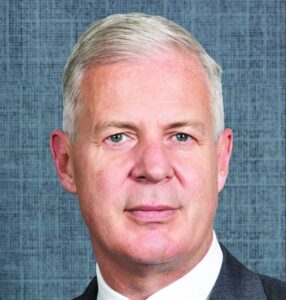
The International Chamber of Commerce (ICC) has introduced reduced fees for Ukrainian companies applying to the ICC International Court of Arbitration. This was announced in an interview with Interfax-Ukraine by ICC Secretary General John W. H. Denton.
“Yes, the decision to reduce fees was implemented to remove barriers to commercial dispute resolution for Ukrainian businesses,” he said.
In addition, according to the ICC Secretary General, the ICC One Click digital platform is now available in Ukrainian and integrated into the network of regional chambers of commerce and industry. He also announced this in an interview with the agency.
“Ukrainian small and medium-sized enterprises (SMEs) are already using the platform, undergoing training, and integrating into international supply chains,” Denton added.
The ICC (International Chamber of Commerce) is the world’s largest business organization representing the interests of the private sector at the global level.
Headquarters: Paris, France.
Member countries: more than 170.
Members: over 45 million companies, entrepreneurs, and business associations worldwide
Status: has observer status at the UN, works closely with the WTO, G20, IMF, and other international organizations.
The ICC develops global standards and rules for doing business (e.g., Incoterms®), resolves international disputes through the ICC International Court of Arbitration, one of the most authoritative arbitration bodies in the world, and promotes free trade, sustainable development, and the digitalization of the economy.
For more information, see the interview: https://interfax.com.ua/news/interview/1082092.html
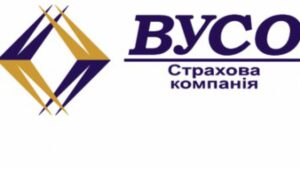
On June 23, PJSC Khmelnytskyoblenergo announced its intention to conclude a contract with IC VUSO for compulsory civil liability insurance for owners of land vehicles (OSAGO), according to the Prozorro electronic public procurement system.
With an expected cost of UAH 4.209 million, the price offered by VUSO, the only participant in the tender, was UAH 4.149 million.
VUSO Insurance Company was founded in 2001. It is a member of the Motor Transport Insurance Bureau of Ukraine and the National Association of Insurance Companies of Ukraine, a participant in the agreement on direct settlement of losses, and a member of the Nuclear Insurance Pool.
INSURANCE, Khmelnytskyoblenergo, Motor transport, VUSO Insurance Company
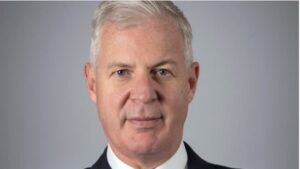
The International Chamber of Commerce (ICC) will hold a roundtable on export finance guarantees as part of the Ukraine Recovery Conference in Rome. This was announced by ICC Secretary General John Denton in an interview.
According to him, one of the main obstacles to investment is the lack of risk insurance coverage.
“We have invited banks, governments, and businesses to address this issue,” he added.
URC2025 will take place on July 10-11, 2025. It will be the fourth Ukraine Recovery Conference, continuing a series of high-level political events dedicated to the rapid recovery and long-term reconstruction of Ukraine.
The ICC (International Chamber of Commerce) is the world’s largest business organization representing the interests of the private sector at the global level. Its headquarters are located in Paris. It has more than 170 member countries and over 45 million companies, entrepreneurs, and business associations worldwide.
Status: has observer status at the UN and works closely with the WTO, G20, IMF, and other international organizations
The ICC develops global standards and rules for doing business (e.g., Incoterms®); resolves international disputes through the ICC International Court of Arbitration, one of the most authoritative arbitration bodies in the world; and promotes free trade, sustainable development, and the digitalization of the economy.
For more details, see the interview at https://interfax.com.ua/news/interview/1082092.html
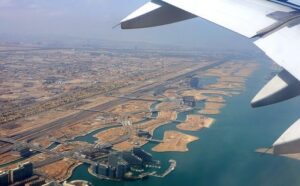
Due to the escalation of the conflict in the Middle East, particularly following US strikes on Iranian targets, the authorities of Qatar, Saudi Arabia, and the UAE have temporarily closed their airspace to civilian aircraft. This has led to widespread flight cancellations and diversions by major international airlines.
Qatar closed its airspace on June 23. About 100 flights to Hamad Airport (Doha) were rerouted via Saudi Arabia and Egypt, which lengthened flight times and increased fuel consumption and operating costs.
The UAE (Dubai and Abu Dhabi) also suspended the arrival and departure of all civilian aircraft, which are forced to turn back before entering the country’s airspace.
The states took preventive measures due to the threat of strikes against American and Western targets in the region. International airlines — Singapore Airlines, British Airways, Air France-KLM, American Airlines, United Airlines, and Air Canada — have suspended or changed their routes to these destinations. Flight routes are now being rerouted via the Caspian Sea and Egypt, which will significantly lengthen flights and increase their cost.
The US Air Force is expected to be active in the skies over the Persian Gulf. US military aircraft will participate in repelling Iranian strikes on American bases and allied facilities in the region. No official announcement has been made yet on how many flights have been canceled, but the situation has already caused serious disruptions to air traffic. For passengers, this means delays, ticket cancellations, and longer routes. The aviation industry is preparing for higher costs and fewer flights through one of the world’s key transit hubs.